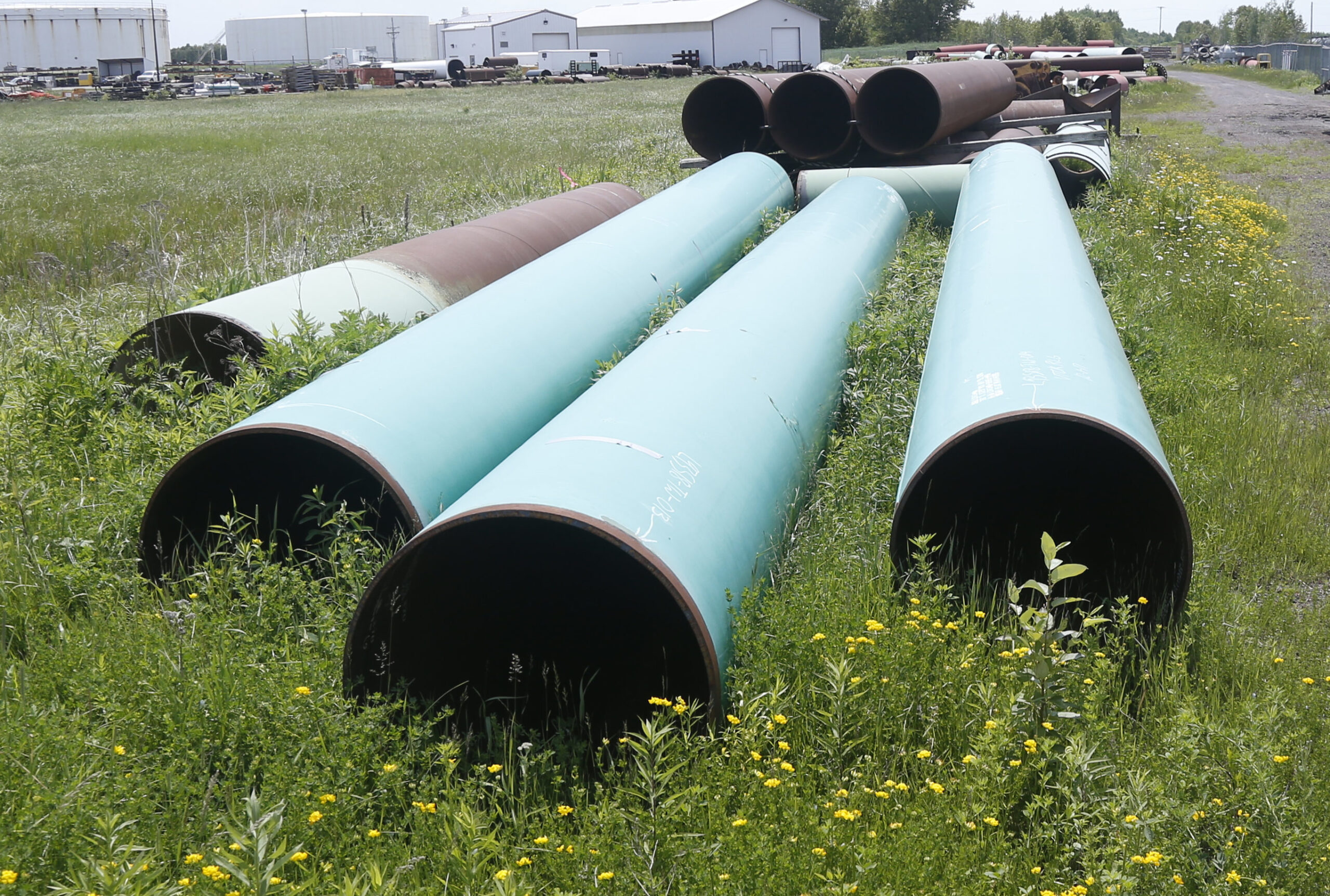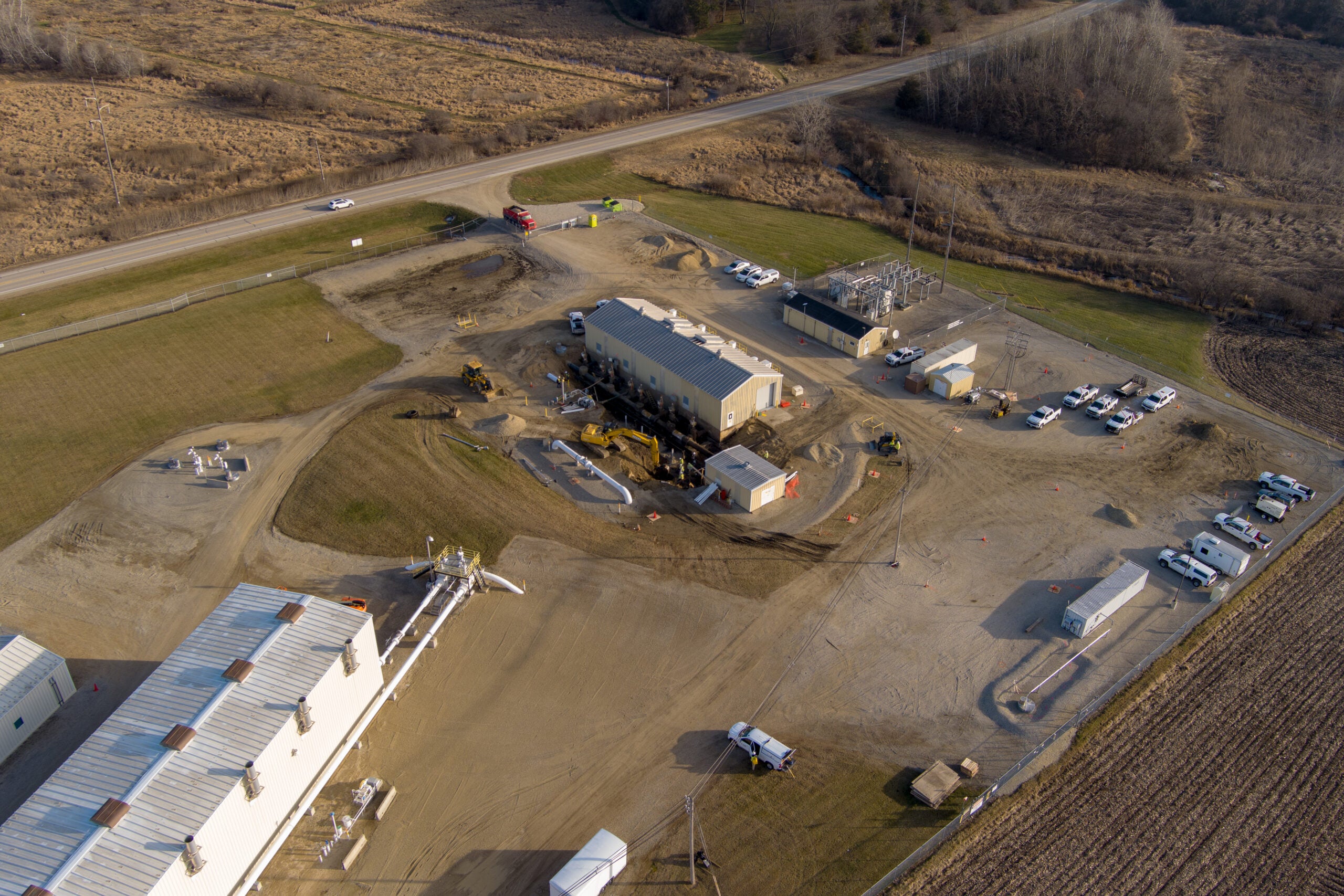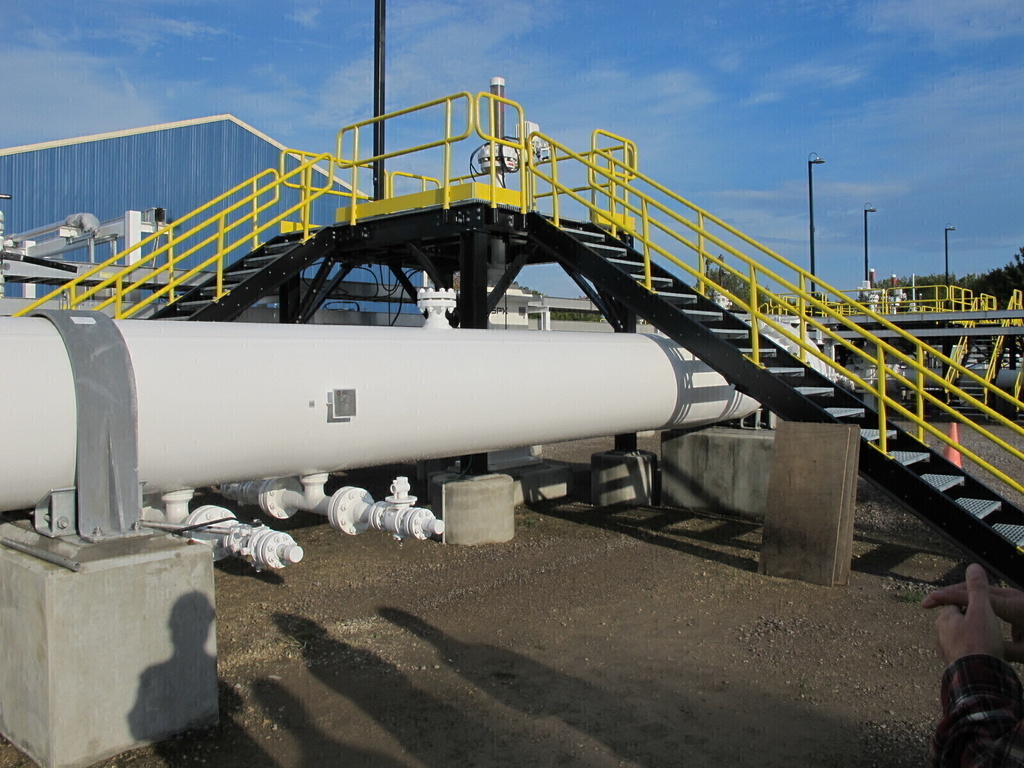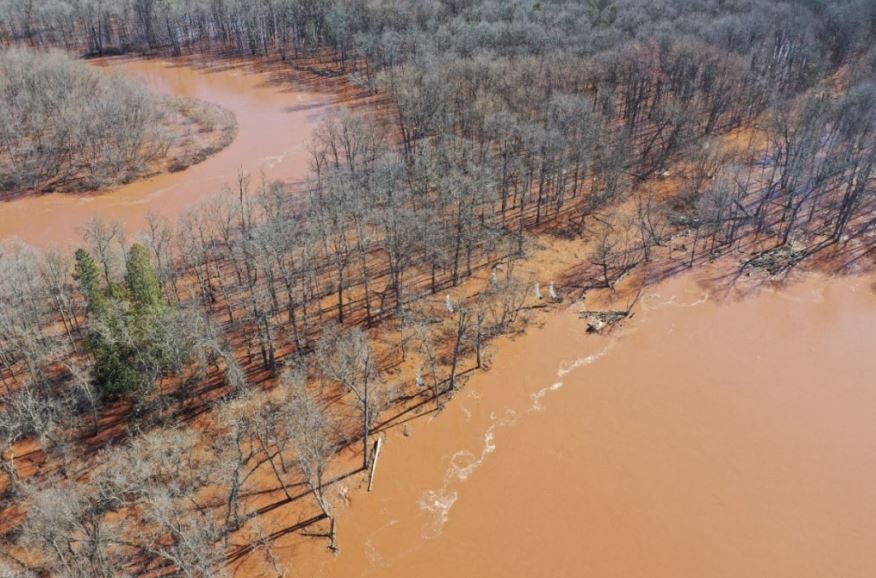The U.S. Environmental Protection Agency is fining Canadian energy firm Enbridge $6.7 million for failing to swiftly address cracks and corrosion through digs on its pipelines.
The company was required to meet certain thresholds for identifying and repairing cracks and corrosion on its lines as part of a 2017 consent decree stemming from oil spills in 2010, including the Kalamazoo River spill in Michigan. The release is considered one of the largest inland spills in the nation’s history, when an Enbridge pipeline ruptured and released at least 843,000 gallons of oil into Talmadge Creek and the Kalamazoo River. The spill cost the company at least $1.2 billion to clean up.
Two months later, another Enbridge pipeline released roughly 269,000 gallons of oil near Romeoville, Illinois.
Stay informed on the latest news
Sign up for WPR’s email newsletter.
In a May 8 letter, the U.S. EPA said Enbridge failed to take swift action following inspections on several occasions to address cracks, corrosion, and an alarm outage on its lines.
The company waited as long as 240 days in one instance before adding several corrosion features to its dig list for excavation and repair on Line 6A, now known as Line 6, which originates in Superior. The pipeline carries up to 667,000 barrels per day of light, medium and heavy crude oil across Wisconsin to Griffith, Indiana.
As part of the consent decree, EPA required Enbridge to add corrosion or cracks that required excavation to its dig list within five days of completing a preliminary review. The agency added actions should in no way take place more than 180 days after inspection. The company said all digs were conducted in the time allotted under the consent decree and could not have completed excavation any faster.
In addition, the EPA said the company failed to swiftly identify and review thousands of “shallow dents” on its pipelines.
“As a result, Enbridge failed to excavate and repair or mitigate shallow dents with indications of metal loss, cracking, or stress risers,” the agency wrote.
In a follow-up letter, Enbridge said all the issues cited are being resolved, and the company has agreed to pay all fines. Mike Koby, vice president of Enbridge U.S. Liquid Operations, said in a media conference call Thursday that there was never any threat to safety or the environment.
“All pipelines in the Lakehead System continue to operate safely and reliably,” said Koby.
Enbridge said the penalties were “largely administrative” that amounted to failure to submit paperwork during the required timeline in some cases. Koby noted the company did not believe cracks identified during an inspection on its Line 4 met the criteria for a follow-up dig and repair. But, they were later added to the list after a follow-up review.
The company added it had already decreased pressure on Line 6A and used vapor corrosion inhibitor injections to address corrosion on the pipeline. The injections are used to slow down and stop corrosion within pipelines.
“It is a measure that we employ across our system, but, per the consent decree, we’re not allowed to use that as a primary method for dealing with certain corrosion features,” said Koby.
Enbridge also noted that other leak detection measures were in place on Line 67 during the 173-day outage of its 24-hour alarm.
The company said penalties related to the “shallow dents” the EPA referenced were largely related to its Line 1 pipeline that runs from Edmonton, Alberta, to Superior. The company said compliance issues were the result of a technical disagreement over what features warranted further review and repair. Enbridge said it’s since addressed hundreds of additional features and conducted digs to inspect the integrity of its lines, finding no threats to pipeline safety.
The Canadian energy firm was previously fined $1.8 million in 2018 for failing to meet inspection deadlines on its pipelines, including on segments of Line 5 running from Superior to Iron River in 2017. Enbridge denied inspections violated terms of the consent decree. The company said inspections occurred a few days later than required timelines in a couple instances but all required maintenance was completed.
Wisconsin Public Radio, © Copyright 2025, Board of Regents of the University of Wisconsin System and Wisconsin Educational Communications Board.




